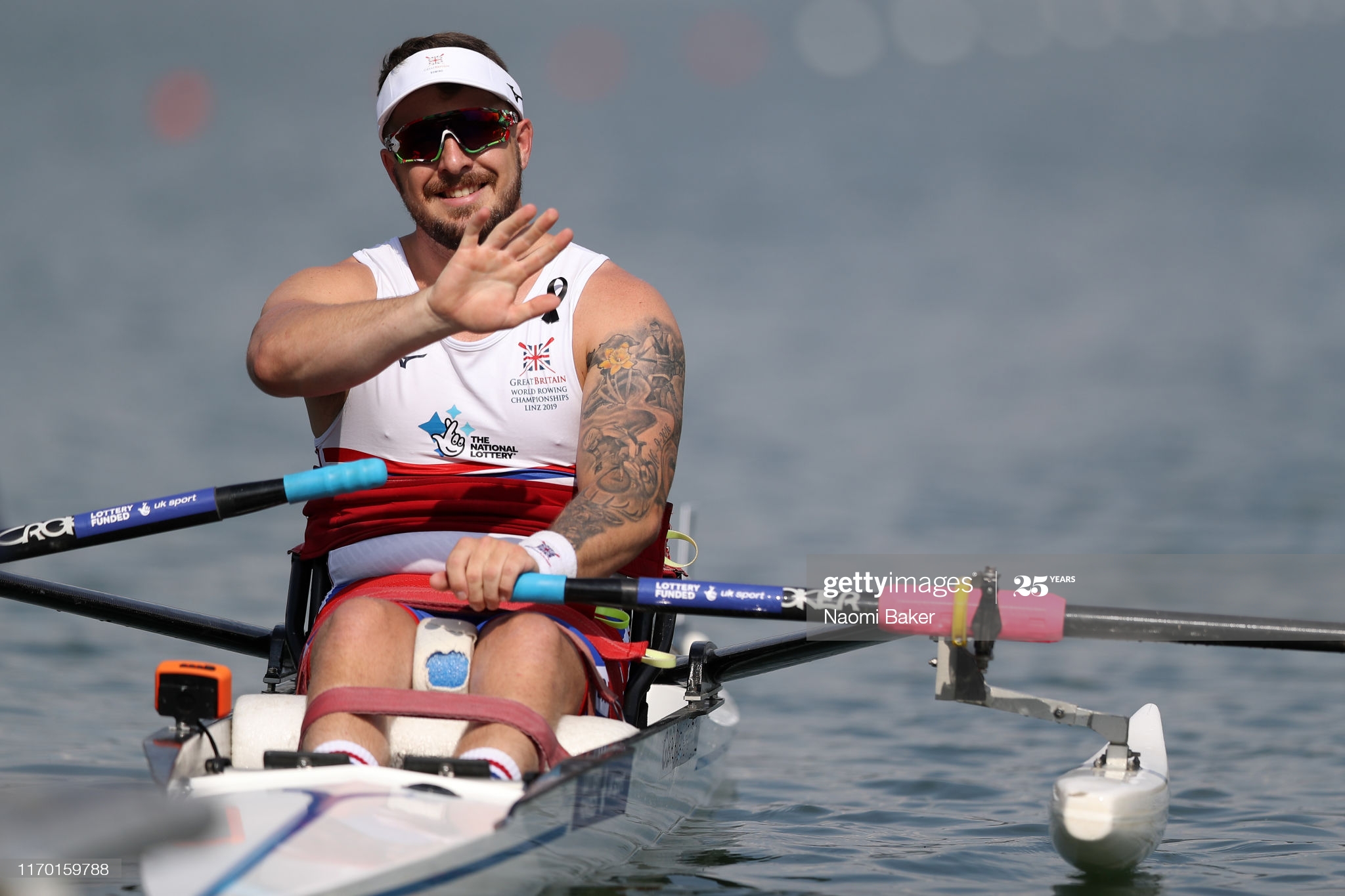Ben Pritchard is enjoying a meteoric rise in the world of rowing and looks destined for the Paralympic Games next summer. But the club where he started have been finding it tough to get back on the water in recent times as Graham Thomas discovered.
The club that launched Ben Pritchard towards the world championship podium is managing to stay afloat thanks to grant money from the Be Active Wales Fund.
City of Swansea Rowing Club – who took Pritchard onto the water after a cycling accident ended his triathlon career in 2016 – are having to adapt to a whole new world.
Until March of this year, the club in Swansea Marina was helping hone the skills of Pritchard on the River Tawe.
They did a pretty good job, too, as he followed in the footsteps of the club’s previous para-rowing star, James Roberts, and looked destined to follow his clubmate to the Paralympics before Covid-19 struck.
Instead, the shutdown forced the club to close its doors for Pritchard and their other 65 members and getting the boats out again has proved a difficult challenge.
As an elite athlete with British Rowing, World Cup bronze medalist Pritchard, at least has been able to stay in training at their base in Caversham, near Reading.
But for regular rowers at the club, the big issue has been the demands of social distancing when participants have had to follow the sport’s strict new guidelines.
“With rowing, unless you’re in a single boat on your own, or in a boat with a family member, you are infringing the social distancing guidelines,” says club president Andrew Williams.
“Most of our members row in larger boats because they are more stable and easier to row. So they would mostly be in a four-man boat, a quadruple scull.
“We do have some smaller boats, but they tend to be for competitive rowing and so they’re a bit harder to handle for the non-competitive rower. We had, maybe four or five boats that might have been suitable, but out of a membership of 60-odd that didn’t make life very easy.”
Put simply, there was a need for smaller, more family-friendly boats that would enable family groupings and individuals to get back on the water.
So, the club made an application to Sport Wales for funding from the Be Active Wales Fund and are grateful for the cash that has enabled them to keep offering rowing to their membership.
The grant funding has been made possible thanks to Welsh Government and repurposed money from the National Lottery, which continues to be one of Welsh sport’s biggest supporters.
Now, they are in the process of purchasing two additional double sculls; a stable double and a fine shell double.

“We’ve managed to borrow a boat or two from the governing body, which has helped, but there are also other clubs who want them as well,” adds Andrew.
“Once we get these new boats, we can give those back and the club can start to breathe again. With rowing, if you lose people to another sport in can be difficult to get them back, especially if they get involved in a sport you can do in all weathers.
“Our main source of income is members’ subscription, so if that starts to decline by a quarter or so then the club is suddenly in severe difficulty. Once you can’t pay your affiliations and insurances, it’s end of sports – so it’s vital we keep going and are able to offer rowing.”
The value of the club to the community of Swansea can be gauged by the fact that membership straddles both ends of the age group spectrum.
The club has a sizeable number from the 12-to 18-year-old section, as well as those aged over 40, who have found the sport offers less stress and strain on the body than running on land.

City of Swansea also have established links with Swansea University and use the new gym facilities at the new Bay Campus for one of their weekly training sessions.
The club welcome new members and once they make the adjustment with the types of boat they have to offer, they are optimistic they can survive and thrive.
“People who row with us for the first time have no idea just how lovely the Tawe is as a stretch of river,” adds Andrew. “When the weather is okay, it’s beautiful and we’re very lucky.”





